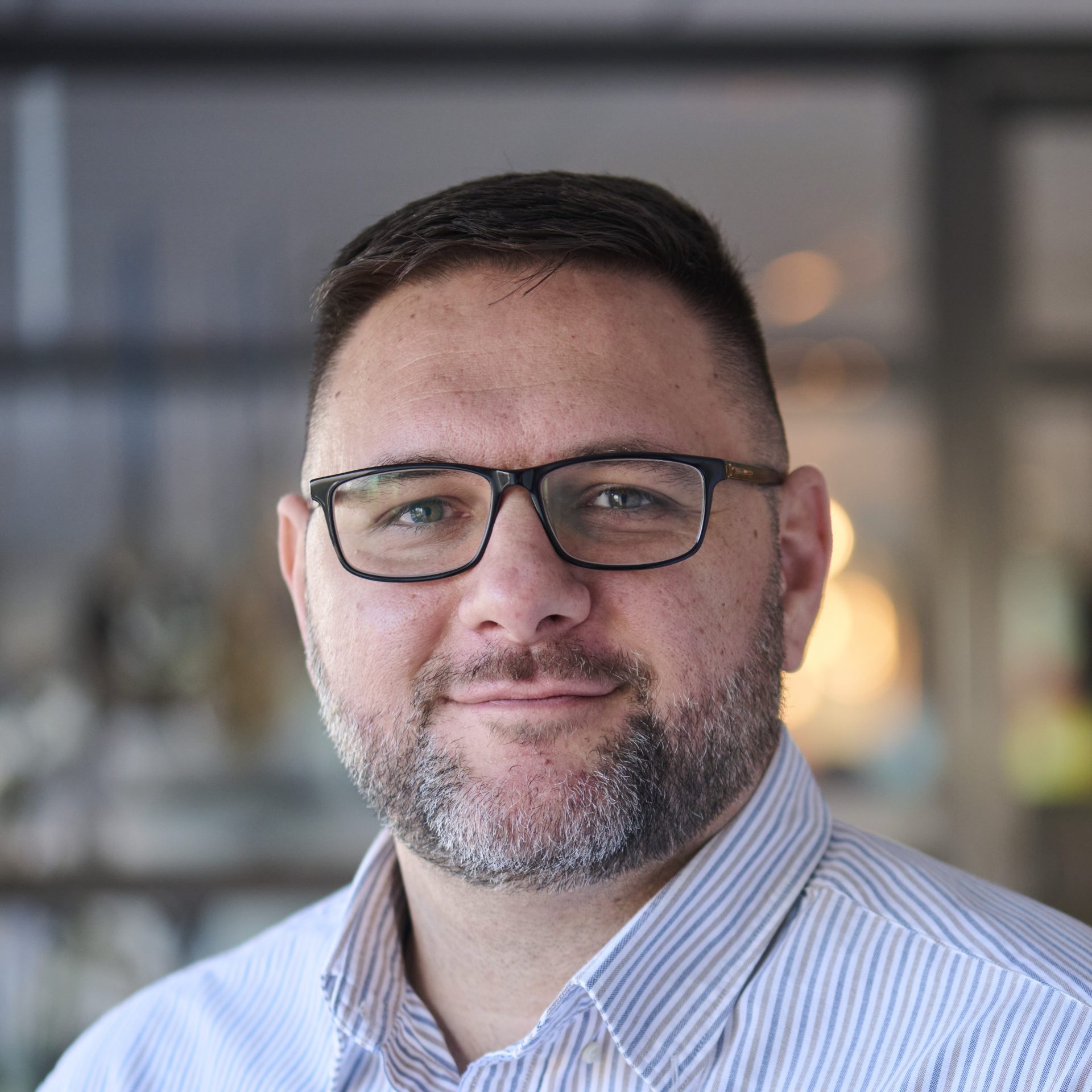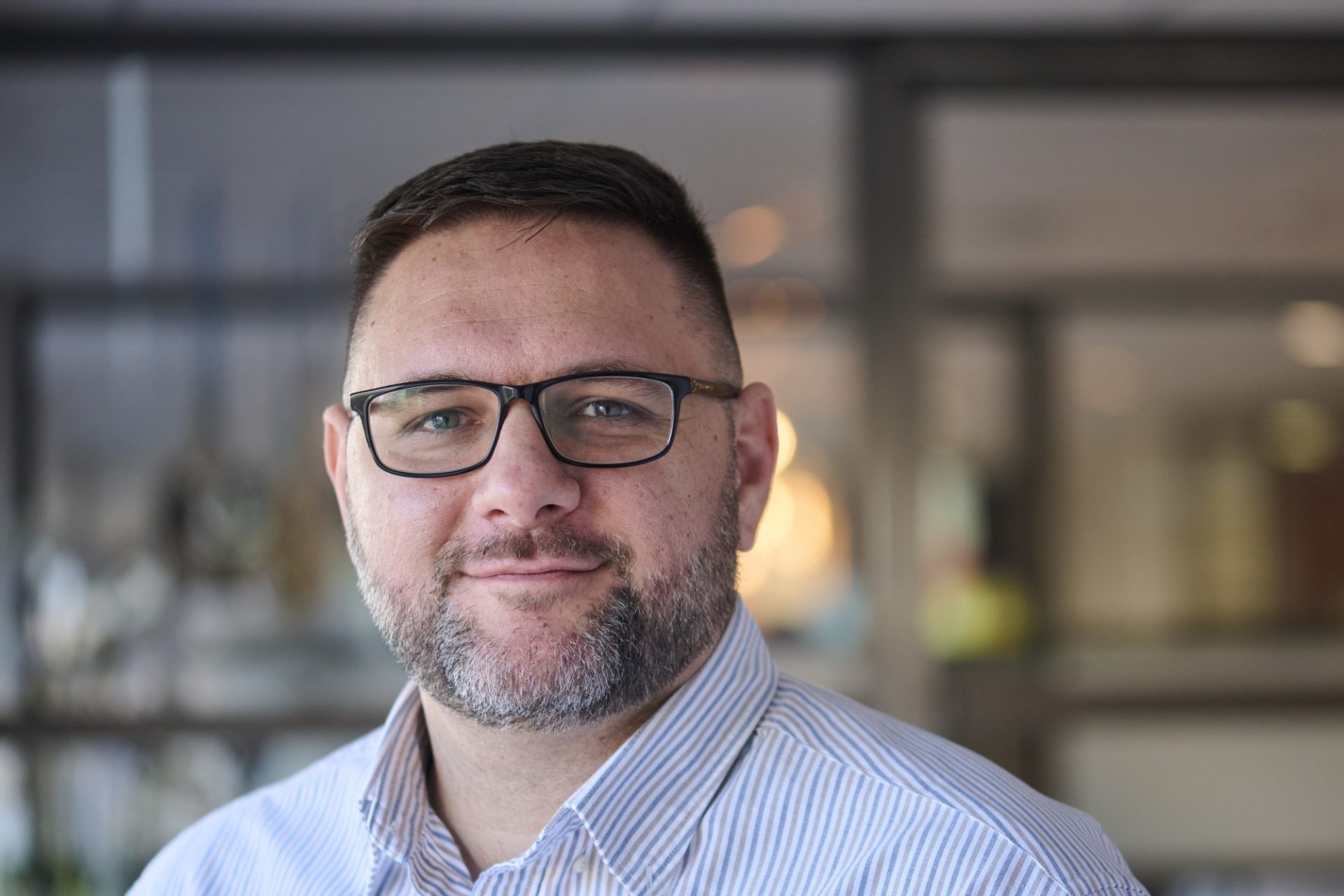Working life
What is a typical day like?
Since the project we are working on is based on the Microsoft hybrid cloud, I like to say that I am a hybrid-cloud engineer, being completely focused on Microsoft Azure and on-premises Microsoft solutions. At the moment, my day is a mix of planning, building, and running. Why all of those phases at once? Because we have a lot of opportunities with our customer, who has locations all around the world needing old systems transformed into new systems. Right now, we are doing the run phase for the site in Poland that we migrated successfully a couple of months ago, while also building infrastructure for the site in Germany and planning migration for the third site in England.
Do you ever go to the customer’s sites abroad?
Actually, yes. Since they announced that the next location will be in Germany, our customer team will go on location for discovery work. We will see what kind of rooms and cables are there, writing down what additional equipment needs to be bought and what we need to do. Then our next visit will probably be when the equipment needs to be installed. The final one will be migration weekend, so all the hardware will be mounted in the racks, operating systems and applications installed, and the production workload migrated to the new system. We want to be sure that everything is up and running and fully operational, and be ready to support them if something doesn’t work or we need to do a rollback. And we always have a good method to do that. For instance, last time for the Poland location, six of us were there, but we had staggered departures; that’s because if all of us travel together, the whole team is in transit for hours, during which no one can help if there is an issue. It is really interesting how that works; someone is always available to jump in and help with whatever is happening.
You’ve been with the company for over a year. What’s your favorite part of the job?
I like the tech stuff. Before my time at Schuberg Philis, I was asked a couple of times: “Would you like to move to the business side of IT?” No. I’m still driven by the technical stuff. As part of that, I like to present at conferences, and I like to teach other people. And I’ve gotten to do those things at Schuberg Philis.
Company culture
How does your experience at this company differ from those of your past?
One of the big differences is that all colleagues are senior-level. And if you have a lot of senior colleagues, then there will be a lot of experience. But even if you are senior, you can still learn a lot from your colleagues. I’m sure that there are a lot of companies in the Netherlands with senior people, but I think that Schuberg Philis is number one when it comes to seniority all within one place. Also, all of us need to be T-shaped engineers: you need to have broad knowledge and at the same time be an expert in at least one field. For instance, Linux is not my strength, but if I need to do something with it, I know how to find correct answers and understand what I’ve found – that’s broad knowledge. If I need to do networking stuff in Azure, I can do almost everything.
How has being an expat been at work?
I feel at home. I don’t feel any kind of problems in being accepted, adapting, or settling in. Colleagues are always ready to give advice, and I can ask them about whatever I want. That was helpful in the process of finding a place to move. My family and I checked out so many cities. After visiting a place and giving it a review, if I thought it was OK, I would find someone from Schuberg Philis who lives there and discuss it with them. A subjective point of view is important, and it was helpful to get ideas from locals. Or if, for example, I need to renovate my bathroom, I can ask colleagues: “Do you know someone?” That is really, really nice if you’re an expat and don’t yet know how things work.
Passion project
What about conferences is fulfilling?
The biggest benefit of conferences is networking. While I worked in Serbia, I was a speaker at conferences worldwide; I have a lot of friends from conferences, and all of them are experts. So when working on a project, if there is something I have doubts about, I can always put out a word on our internal messaging groups and say: “Hey, I have this situation. Have you had a similar experience?” When I was interviewing for this job, I said: “I like to present at conferences, that is important for me, and it is one of the ways to keep my Microsoft Azure MVP status. What do you think about that?” My interviewers told me: “We don’t have anything against that; would you like to represent the company?” After a period when most conferences were online, I’m now trying to find a balance between attending conferences and working on projects because if I am at a conference for four days, that means I’m not productive for four days. Even though we have flexibility here, we also have responsibilities, and we as a team need to have consent on my time away.
How did you cultivate your specialty in Microsoft Azure?
It’s a long story. I was a professional musician for 15 years. I graduated from music high school. At some point, I decided that I couldn’t make a living doing music in Serbia and thought: what is closest to my passion? Computers. That’s because I already worked with computers in a music studio and worked as a local technician installing Windows operating systems and small networking stuff. Then I decided to start with specialized Microsoft trainings. Within nine months, I completed training, passed all exams, and obtained my first certificate. Up until 2015, on weekdays, I was an IT guy. Over the weekend, I was a musician. I was mostly playing traditional and popular Serbian music because I played accordion. Then I switched to the keyboard and started playing in clubs.
Nowadays do you have time for much of a music network?
No, I don’t have a keyboard since I sold all my stuff a couple of years back. But after settling into our new home, my plan is to buy some kind of electric piano. There is an initiative among colleagues to form a Schuberg Philis band. Some colleagues are already playing instruments together in the Rotterdam office. But at the moment, as far as I know, they’re only practicing. Probably official playing will be during the Greater Customer Teams (GCT) meeting in Rotterdam.
Do they have a keyboard player already?
I haven’t seen any yet, so maybe they are waiting for me.
Curious to know more about how more colleagues spend their days? See the whole series here.

